Technologiegespräche 2021
Technologiegespräche 26. - 27. August 2021
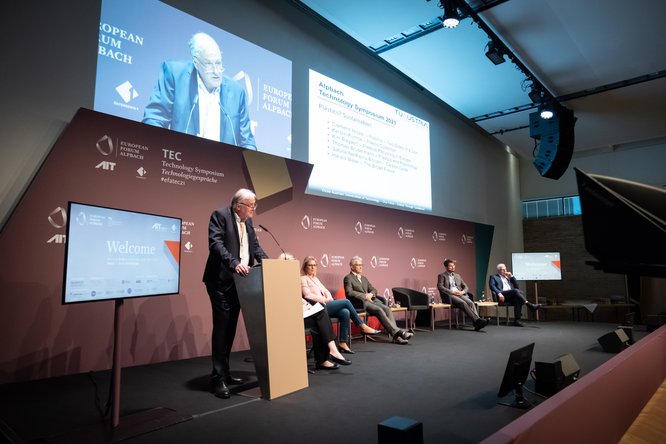
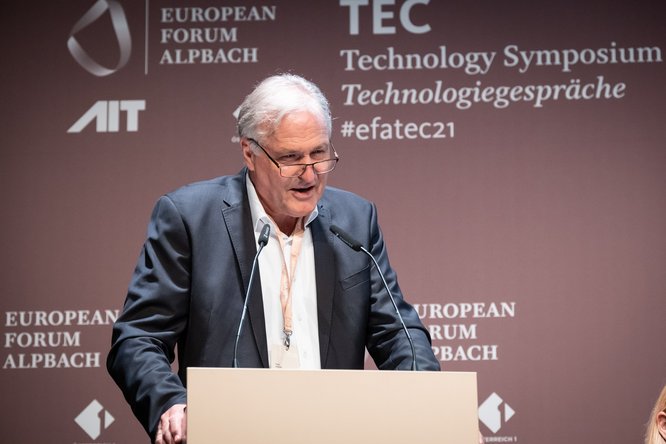
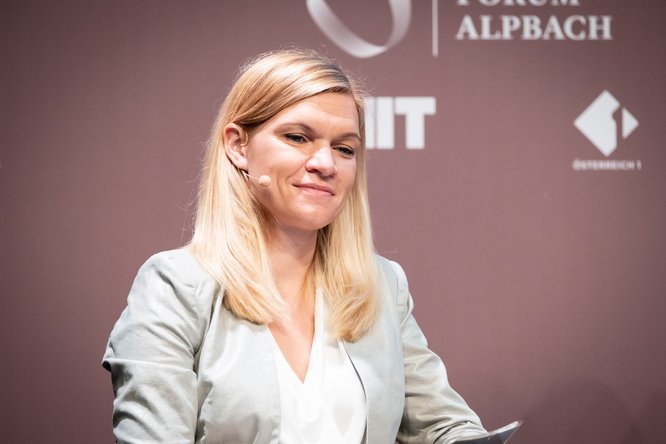
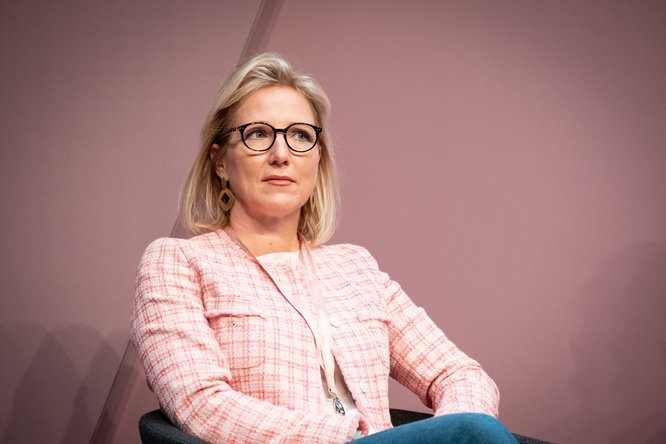
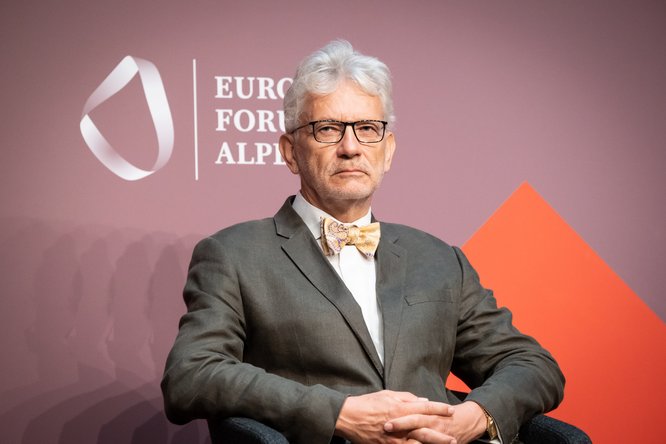
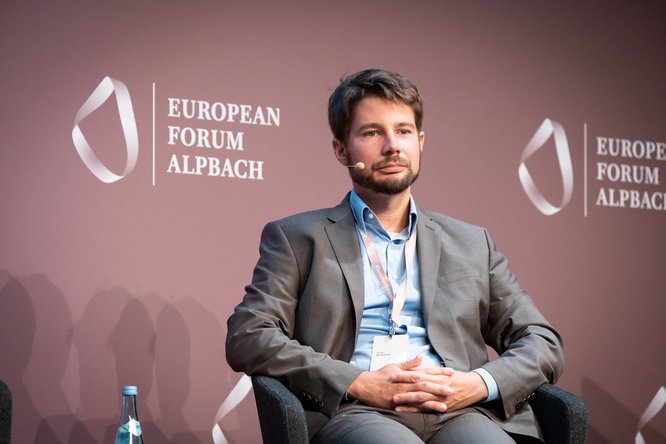
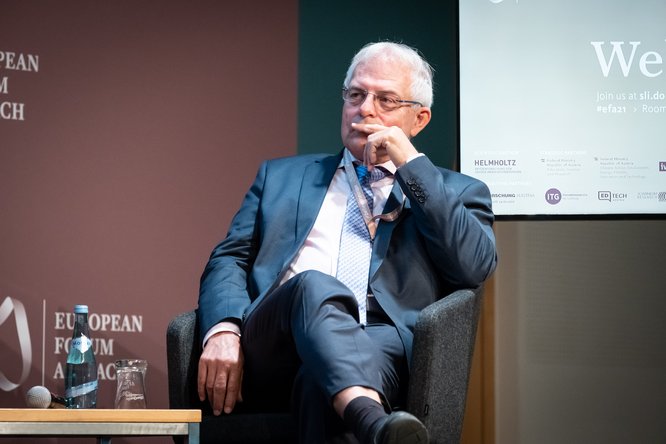
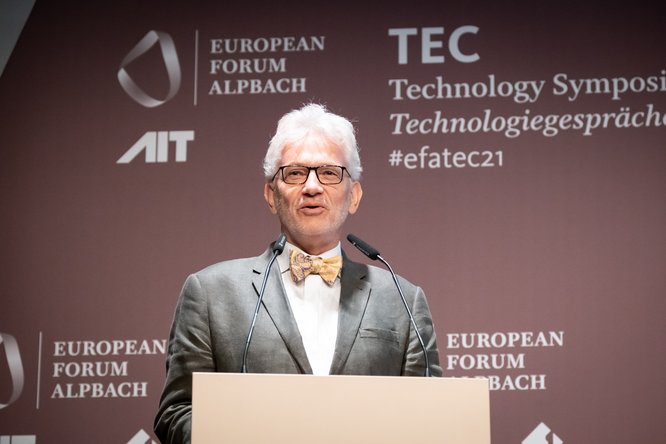
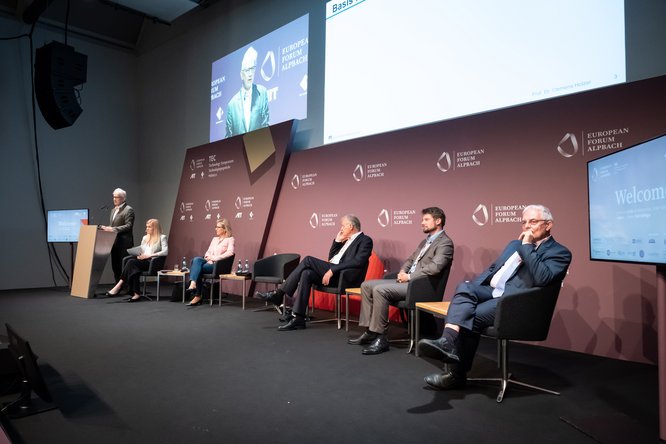
Fotocredit ©AIT, Hans Leitner
Das Europäische Forum Alpbach 2021 stand unter dem Motto "The Great Transformation".
Auch in diesem Jahr wirkte die TU Austria an den Technologiegesprächen mit einer englischsprachigen Breakout-Session zum spannenden Thema PLASTICS! SUSTAINABLE? am Freitag, 27.08.2021, 10:00 - 13:00 Uhr mit.
About the Session
Plastics are an essential building block of life as we know it. Yet their general image is very negative and primarily related to single use polymers as packaging and other short-term products. In fact, the majority of plastics are used as valuable materials in long-life products, as in construction, infrastructure, mobility, energy transmission, medicine and so on and thus are contributing to many SDGs. On the basis of a comprehensive Life Cycle Assessment along the value chain from the raw material to the final products and their use, the majority of plastic products have a very favourable impact balance and perfectly fit into the Circular Economy Approach.
This years’s break out session of TU Austria was organized under the patronage of Montanuniversität Leoben and was concerned with the question if plastics are and can be a sustainable part of our societal system. Recent public discourse has stigmatized the material as being responsible for unsustainable development and even climate change. The dimensions addressed therefore focused on the genesis of the material and its function in society through countless applications as opposed to the concept of single use plastics that dominates media representation. Furthermore, the role of human agency in handling and managing the material was addressed from a systemic point of view and whether or not a material can be responsible for anything.
The group of speakers representing the topic in a very balanced way were a mix of European experts both from academia and industry, thus giving a holistic view on the topic. The session was opened by Wilfried Eichlseder, Rector of Montanuniversität Leoben and acting president of TU Austria, with devoted welcome words. The first talk was given by Peter Moser, Vice Rector of the University of Leoben and professor of mining, with an overview of the overarching theme of the meaning of materials in and for our society and sustainable material systems. Next up was Prof. Clemens Holzer from Montanuniversität and professor for polymer processing, who addressed how plastics are produced and why they are an indispensable part of our world. This was followed by Prof. Kerstin Kuchta from the Hamburg University of Technology and an environmental technologist who gave an insight into the complexity of plastic collection and related systems and the implications of successful collection for subsequent recycling. Prof. Kim Ragaert from the University of Ghent who is material scientist took it from there by elaborating on the technical implications of recycling technology and general misconceptions related to this such as the non-biodegradability of bio-based plastics. After this Thomas Brudermann from the University of Graz and an economic psychologist, taught the audience about how oftentimes plastics are misconceived through psychological mechanisms such as knowledge overconfidence or hasty generalizations and in this way a lack of holistic informed discourse. Subsequently, Sabine Nadherny-Borutin, a food and biotechnologist from PlasticsEurope talked about the carbon cycle and the importance of closing the loop thereby preserving the carbon basis of plastics for as long as possible to minimize CO2 emissions. Finally, Harald Bleier, technology evangelist from EcoPlus, talked about our plastics heritage and the future outlook on how to best clean up our past mismanagement.
Despite calls for alternatives or replacement of the material the session has shown that plastics are a wonderful material with properties that render it versatile and highly useful for society. It has a wide variety of applications that we could not do without it our modern society, the most wonderful example most likely being high-end applications in the medical sector. Society should therefore better take responsibility on how it handles the material. Taking responsibility is an action that inherent to the concept requires human agency. Plastics cannot take responsibility and do not litter themselves. Therefore, all members of society, producers, consumers and policy makers are co-responsible for how the material is used and disposed of. In the sense of SDG12 it is time to admit we can do better and come up with solutions instead of replacing the material.
Programme & Speaker
10:00 – 10:10 Welcome and Introduction
- Welcome: Univ. Prof. Dr. Wilfried Eichlseder, Rector Montanuniversität Leoben, President TU Austria
- Welcome: Univ. Prof. Dr. Peter Moser, Vice Rector Montanuniversität Leoben, Austria
- Moderation: Susanne Feiel, MA, Head of Resources Innovation Center, Montanuniversität Leoben
10:10 – 11:00 - General introduction to plastics production and waste management
10:10 - 10:35 Plastics! Two Sides of a Coin
Clemens Holzer, Prof. at Montanuniversität Leoben.
Various types of polymers, the production of products, and the short and long-term behaviour of plastic, including their environmental relevance and their usage behaviour.
10:35 – 11.00 From Use to Sea
Kerstin Kuchta, Prof. at TU Hamburg-Harburg at Institut für Umwelttechnik und Energiewirtschaft.
Show how things are going in the worst case - and what is the easiest thing to do about it: Collect!
11:00 – 11:50 How plastics fit into the Circular Economy Approach
11:00 – 11:25 Plastics and SDGs
Kim Ragaert, Prof. at University Ghent, Belgium.
Plastics and sustainability. Plastics to resource pipeline, policy, product development and LCA.
11:25 - 11:50 Plastics and Psychology +
Thomas Brudermann, Ass.-Prof. at Institute of Systems Sciences, Innovation and Sustainability Research, University of Graz.
How plastic could become evil?
11:50 – 12:40 Innovative ideas on the sustainability increase of polymer products
11:50 - 12:15 Carbon Cycle
Sabine Nadherny-Borutin, General secretary of Plastics Europe Austria.
Holistic view of carbon material flows (with focus on plastics).
12:15 – 12:40 The Broad Future
Harald Bleier, Technology Evangelist at ecoplus
Ecological as well as technical and administrative visions and innovations in connection with carbon recycling.
12:40 – 13:00 a.m. Discussion and conclusion